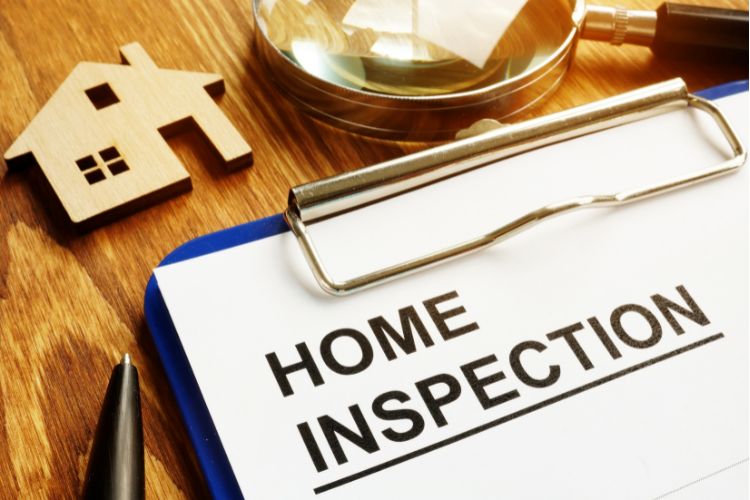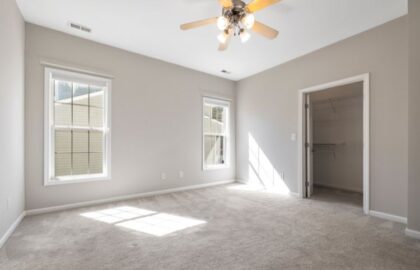
Property inspections are a common occurrence for renters in Queensland. Landlords and property managers conduct these inspections to monitor the condition of the rental property, check for any damages, and ensure the tenants are properly maintaining the home.
While inspections serve an important purpose for property managers, they can sometimes feel intrusive or inconvenient for tenants. This leads many to wonder, can a tenant refuse a property inspection request?
Read on to find out!
TL;DR
Tenants cannot outright refuse a properly notified inspection without breaching their tenancy agreement. However, renters do have some rights when it comes to managing inspections.
With reasonable notice periods, negotiated frequency, and exercising their right to be present, tenants can work with property managers to facilitate reasonable property inspections.
Reasons Property Managers Conduct Inspections
Property inspections aim to protect the interests of both landlords and prospective tenants. For property managers, routine inspections are important for several reasons:
- Monitor Condition: Inspections allow landlords and agents to check the current condition of the rental, noting any new damages, wear and tear, and areas in need of maintenance or repair. This helps inform maintenance requests and prevent larger problems down the road.
- Cleanliness: Property managers inspect to ensure tenants are keeping the property in a reasonably clean and tidy state, per their lease obligations. Signs of mould, dirtiness or negligence may indicate contract breaches.
- Legal Requirements: The Residential Tenancies Authority requires routine inspections at minimum intervals, in Queensland minimum 3 months between inspections. Property managers must comply with these legal requirements.
- Preparing for New Tenants: Before the end of a lease, an inspection prepares the property to be re-rented, identifying cleaning or repair needs. The outgoing tenant is responsible for addressing identified issues.
Also Read: What Do Building and Pest Inspections Look For?
Providing Proper Notice for Entry and Inspections
In Queensland, landlords and property managers must provide tenants with a proper notice period before entering the property for inspections.
The requirements under the Residential Tenancies Act include:
- Notice must be given in writing, stating the purpose, date, and entry time window.
- Minimum 7 to 14 days notice is considered reasonable for routine inspections.
- Entry must occur at a reasonable hour, between 8 AM to 6 PM on weekdays.
- Reasonable effort must be made to accommodate the tenant’s schedule when picking an inspection time.
Property managers should make a genuine effort to communicate with the tenant and provide the maximum possible notice. Tenants can also negotiate longer notice periods, such as 3 to 4 weeks. This provides ample time to tidy up and prepare.

Frequency of Inspections
The Residential Tenancies Authority allows property managers to conduct one routine inspection every three months in Queensland.
Additional inspections may also take place for specific reasons, such as:
- Following up on maintenance requests.
- Assessing any reported damages.
- Preparing for the end-of-lease move-out.
While legally allowed quarterly, many tenants find this frequency excessive and intrusive. Tenants can reasonably request that inspections be limited to just one every 6 months.
This still provides oversight for the property manager while minimising inconvenience.
Exercising Tenant Rights During Inspections
Tenants have certain rights regarding their presence during the inspection itself. These include:
- Being present for the inspection, along with any representative if desired.
- Taking their own photos and videos to document the inspection process.
- Reviewing the inspection report for accuracy and noting any factual discrepancies.
- Contesting any inspection claims perceived as inaccurate, biased, or nit-picky.
If issues arise during the inspection, the tenant should aim to resolve them reasonably with the property manager. Evidence like photos and communication records will help support their case.
Can a Tenant Refuse Access or Reschedule?
While tenants cannot outright refuse a properly notified inspection without breaching their lease, they can ask to reschedule or postpone the inspection in some reasonable circumstances.
For example, if the proposed inspection time conflicts with an important Personal or Professional obligation, the tenant can ask to reschedule to a more convenient day and time. The property manager must make reasonable efforts to cooperate.
If an urgent issue arises, like necessary repairs or maintenance that require immediate access on the planned inspection date, the tenant may need to deny access on that particular day.
However, they should inform the property manager as soon as possible and be prepared to provide evidence if requested.
Persistent denial of reasonable inspection access can lead to lease violations and eviction proceedings. Tenants should tread carefully and obtain legal advice if needed.
Seeking Legal Advice on Inspection Disputes

To best understand their rights and obligations related to inspections in Queensland, tenants should:
- Carefully review their specific tenancy agreement terms.
- Have clear communication with the managing real estate agent or landlord about any concerns.
- Seek guidance from tenancy advocacy services or legal professionals.
A lawyer can provide expert advice around lawful reasons for denying access or contesting an inspection report. They can also assist with disputes over repair requests or pursue harassment claims if inspections become excessive or intrusive.
Wrap-Up
While tenants in Queensland do not have the right to simply reject a properly notified inspection request, they do have options when it comes to managing inspection frequency, notice periods and process disputes.
With reasonable negotiation, following legal notice requirements, exercising their presence rights, documenting the process and seeking legal advice when needed, renters can work to make inspections minimally disruptive.
While not always avoidable, understanding both parties’ rights and obligations allows tenants to handle inspections effectively.







